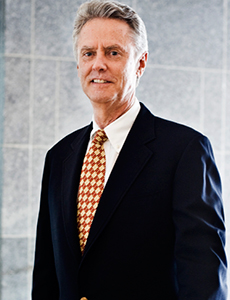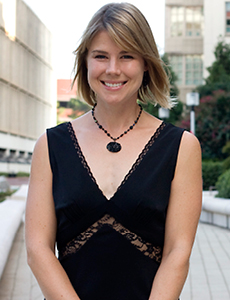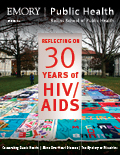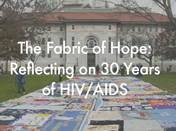Leaders in HIV prevention
Two epidemiologists, bound by their global efforts to combat AIDS, are honored by the RSPH Alumni Association in 2010
Robert Bailey - Distinguished Achievement Award

Robert Bailey |
In 2007, Time Magazine declared male circumcision to prevent HIV as the No. 1 medical breakthrough of the year. Robert Bailey 97MPH, the University of Illinois at Chicago epidemiology researcher behind the breakthrough, is the recipient of the Distinguished Achievement Award for 2010.
Bailey’s interest in male circumcision as a prevention measure surfaced in 1995 after reading about the parallels between uncircumcised men and the high prevalence of HIV in sub-Saharan Africa. Through subsequent studies, Bailey’s research team sought to convince African policy-makers and international health officials to advocate circumcision as a widespread prevention measure. In 2006, their randomized clinical trial in Kenya was halted when interim results showed that circumcised men had a 60% lower rate of HIV infection than uncircumcised men. Two other trials showed similar results, leading the WHO and UNAIDS to recommend in 2007 that circumcision be used to prevent HIV in countries with a high prevalence of disease.
Through his team’s work, Bailey galvanized international donor agencies and policy-makers to address a problem hidden for decades and marshal resources to make male circumcision available throughout Africa. In Kenya alone, more than 250,000 men have been circumcised and thousands of couples counseled and tested for HIV.
“I and many others are now committed to making these services available on a broad scale because, as we have shown, it will result in the aversion of millions of new infections in both men and women over the next 20 years,” says Bailey. “We will never be able to treat our way to an AIDS-free world. Circumcision is the first in what will hopefully be a series of new biomedical and behavioral interventions that will drive HIV into submission.”
Alison Smith - Matthew Lee Girvin Award

Alison Smith has worked in Africa, Asia, and Latin America to inform national efforts on HIV prevention. |
Like fellow alumnus Robert Bailey, Alison Smith 05MPH has sought to prevent and control HIV/AIDS. Prior to entering Mercer University School of Medicine last fall, Smith was an epidemiologist with the CDC’s Global AIDS Program. There she led efforts to collect crucial HIV data and determine risk factors in countries like Sudan, the Democratic Republic of Congo, and Angola, where the threat of violence can arise daily.
For her efforts, Smith received the 2010 Matthew Lee Girvin Award, presented by the RSPH to young professionals who improve the lives of others. Girvin, a 1994 alumnus, died in a 2001 helicopter crash while on a U.N. surveying mission in Mongolia.
Smith put her own personal safety aside on several occasions. In Angola, she helped produce the first reliable HIV estimates and analyzed data to shape the Ministry of Health’s response to the disease. In North Sudan, she developed a national HIV surveillance survey. She worked with the Ministry of Health and the U.N. High Commissioner for Refugees to collect HIV data from refugee camps in eastern Sudan for the first time.
In countries in Africa, Asia, and Central America, Smith taught public health workers how to collect and analyze survey data. In the Democratic Republic of Congo, she advised in-country colleagues who gather and report health data and plan future surveillance programs. In Honduras and Guatemala, she used data on men who have sex with men, IV drug users, and commercial sex workers to inform health workers and officials there about the prevalence of HIV among these vulnerable populations. Prior to enrolling in medical school, she was a public health adviser in the Malaria Branch of the CDC’s Division of Parasitic Diseases, where she worked on campaigns to distribute insecticide-treated bednets and improve data collection and reporting in Uganda, Malawi, and Benin.
Through her various efforts, Smith armed national health leaders with crucial information and the skills needed to collect data independently in the future.
“By gathering data on what geographic areas and subpopulations are most affected by the HIV epidemic, we made important contributions to prevention and control efforts,” says Smith. “Without data to guide programmatic efforts, we would be shooting in the dark.”—Pam Auchmutey



